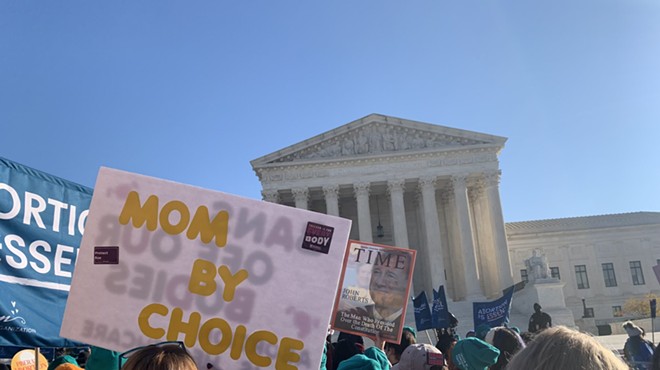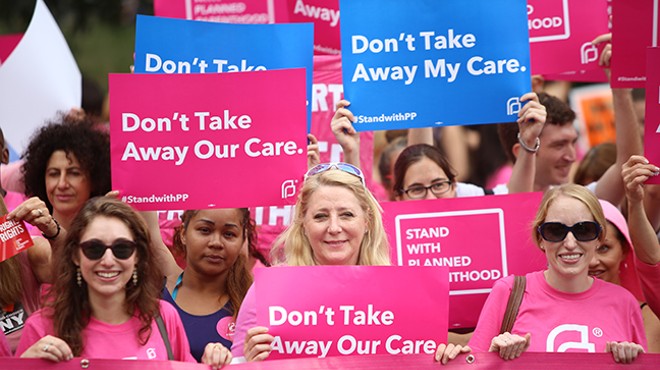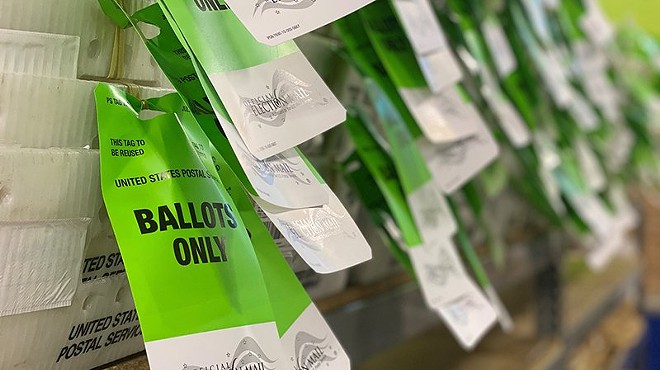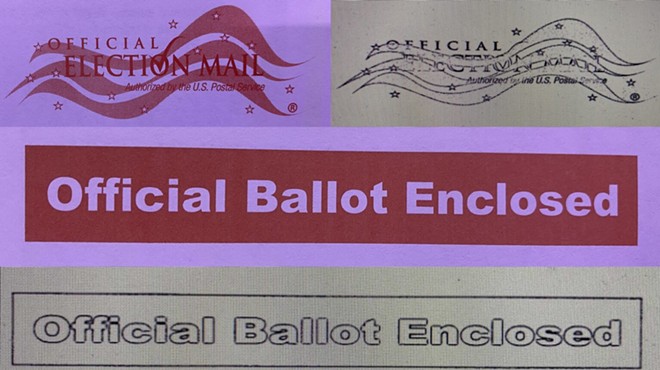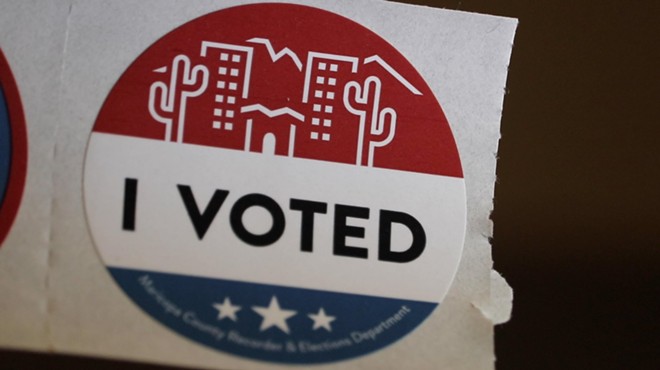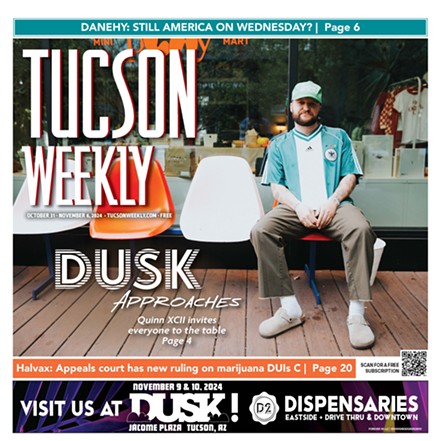Tuesday, November 6, 2012
A Range Q&A: Gabriel Buelna on 'Outlawing Shakespeare'
A Range Q&A: Gabriel Buelna, PhD, executive producer of Outlawing Shakespeare: The Battle for the Tucson Mind:
When the documentary Outlawing Shakespeare made its debut last week, along with a call to post a link to the documentary to all forms of social media, our post seemed to spark the interest of Tucson Unified School District board member Mark Stegeman.
In the documentary, the filmmakers pick up where the film Precious Knowledge left off in the battle over Mexican-American studies. It also shows the filmmakers going to Stegeman and TUSD board member Alexandre Sugiyama's office on the UA campus. Stegeman is a UA assistant professor and Sugiyama is a lecturer in the Economics Department. The filmmakers claim they had been in touch by email with Sugiyama and tried to reach Stegeman before coming to Tucson to schedule an interview, but Stegeman never returned their calls.
When they arrived in Tucson from the Los Angeles area, they went to the UA hoping they could still get interviews before returning home. On the Tucson Weekly's Range, Stegeman said he was never contacted by the filmmakers. We contacted executive producer Gabriel Buelna to find out why they made the documentary and how they went about contacting everyone they interviewed — including Attorney General Tom Horne and State Rep. Steve Montenegro.
What interested you in doing a documentary on Tucson and the issue of Mexican-American studies?
My father was an immigration agent in Nogales in the 1950s and my great-aunt graduated about 100 years from the University of Arizona in Tucson. Tucson has already been discussed in my family, but I'd never really been there. When we heard about this thing about banning books and that Rudy Acuna had been taking students there we wanted to learn more. One day, watching the History Channel, I saw a documentary on how Arizona's boundaries or borders got made and how it involved the Confederacy. It just piqued my curiosity. Arizona has had a tumultuous past, especially the area in Tucson, which was part of the Gadsden Purchase, which the Confederacy wanted because they wanted to build a railroad through the area. It was really — that area of Tucson — all the way through LA was an important corridor for a potentially successful Confederacy.
And you heard about books being banned in the classrooms?
That combined with hearing about he books, my director and I decided to do a documentary. We started by calling on many different people to do interviews, from Rudy Acuna to Tom Horne. Our goal was to do a balanced approach that would get everyone's side. If you notice we give Tom Horne a lot of time in this documentary. We interview Rep. Steve Montenegro, but he didn't want the cameras in his office but we still interviewed him. It was interesting, because whether you agree or disagree with him, he has his own rationale. We also contacted Senator Frank Antenori. We contacted TUSD, we contacted Grijalva, we contacted Stegeman at least 10 times and Dr. Sugiyama. Dr. Sugiyama responded that he only wanted one voice to come out of TUSD.
What did you find interesting as you started your interviews?
What was interested was right from the beginning when we started with Horne and Montenegro. Mr. Montenegro said he wrote the bill HB2281, and Horne said he wrote the bill. They couldn't agree on who wrote the bill. After the interview with Montenegro, he wanted me to interview some teachers that are supposedly against MAS. “Fine, let's interview whoever you wanted,” we said. He started making excuses why they wouldn't want to be interviewed. So we started to ask why and became more intrigued, and started interviewing teachers and parents and back to the Phoenix. Steve Montenegro told us that, “If you find that my legislation has hurt anyone. I will take it back. I will introduce new legislation to repeal HB2281.” So my question to Mr. Montenegro now is that since we took you on your word and we found that HB2281 has been painful — he said books weren't banned and we obviously found that books were being banned. Our question is that now that you found this to be true, why won't you HB2281? Also the Cambium Report is interesting in how (Superintendent) John Huppenthal and Horn look at that report. I asked Tom Horne and he said that's just a mistake. The report is illegitimate because the company that did it has positive thoughts about Ebonics. He starts talking about this and then brings up the fact that all the MAS students just want to create Aztlan. I've never heard an attorney general talk about the concept of Aztlan. We interviewed dozens of people, professors, students, no one knew what Horne was talking about. This whole thing called Aztlan. Then he said Delores Huerta is responsible for everything. So Tom Horne made everything up as a reason to create this law. It's amazing.
You go into the process of how a replacement was selected for late TUSD board member Judy Burns.
Yes. It was interesting. Here you have Judy Burns who has died, Mark Stegeman and Michael Hicks send a letter to (Pima County Schools Superintendent) Linda Arzoumanian saying that there is a little clique that wants to take over the school board. Well the definition of a clique is appointing the person you have power over — Alexandre Sugiyama — to the school board, which he and Michael Hicks did. So, there is a lot of sarcasm in the documentary, because if this wasn't reality it would be funny.
So what was your process contacting all TUSD board members?
First in February we sent them a letter, then we contacted TUSD's representative Cara Rene and we spoke with her and she said, “I'm going to speak to each one of them and they will get back to you or won't.” The only one I spoke with was Ms. Grijalva. I spoke to the mayor of Tucson (Jonathan Rothschild) and Regina Romero on the city council. Some people didn't get in the documentary, but we're not done. We are going to make a two-hour documentary. We aren't done with this yet.
Why go to the UA campus to Stegeman and Sugiyama's office?
I called the university and called Stegeman's office probably about 10 to 20 times and called him to let him know we were going to be there. You can see in the documentary that we were there and that Stegeman was there in the office when we went to the university. The reason we put that part in the documentary was because we knew they would say, “We didn't know about you.” There you see us going back and forth because we knew they would say we didn't try to get hold of them. Yes we did and in fact we were in your office. Let's say he had never heard of us, why didn't he come out of his office to say, “You know what? You guys need to schedule a time.” Why didn't he do that? He was trying to ignore us because he doesn't have good answers for what he is doing.
What do you need to do to finish the documentary? Fundraising?
Yes we need to fund-raise in order to finish the documentary, but what we really want is for anyone to first watch the entire thing. Watch it, then blog it on Facebook. But the most important thing is to create an event. Invite all your friends to watch it. The goal is to get as many people to see this documentary as possible.
To see Outlawing Shakespeare, go here.
Tags: Gabriel Buelna , Outlawing Shakespeare , TUSD , Tucson Unified School District , Mark Stegeman , Alexandre Sugiyama , Tom Horne , John Huppenthal , Jonathan Rothschild , Rudy Acuna , Mexican American Studies , MAS , Michael Hicks , Adelita Grijalva , Cara Rene , MAS






